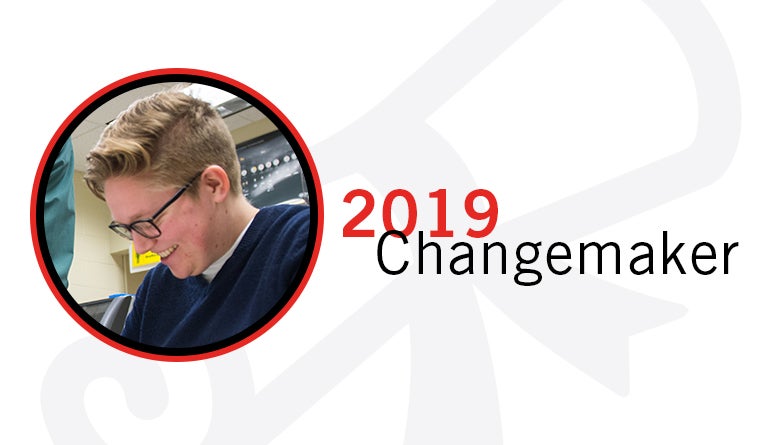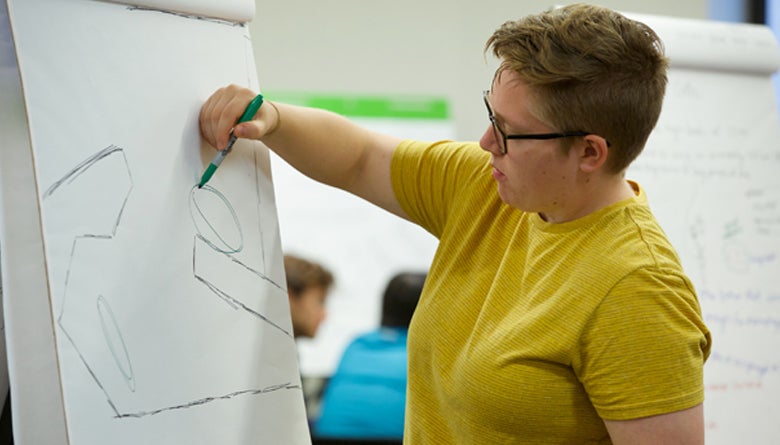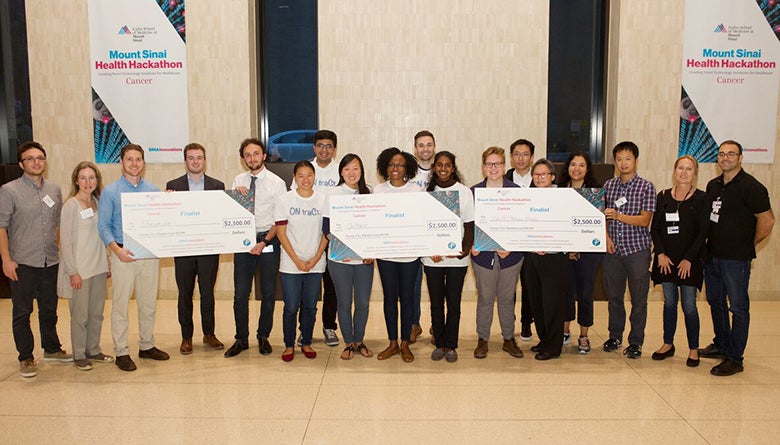“Altruism is ingrained in me,” said Lydia Krauss, the daughter of two Presbyterian ministers. Her four years at Rensselaer Polytechnic Institute have certainly borne that out. She has developed numerous projects aimed at making life better and more accessible for others.
While these are lofty goals, Krauss said that pursuing a dual major in Design, Innovation, and Society (DIS) in the School of Humanities, Arts, and Social Sciences and Biomedical Engineering (BME) in the School of Engineering made her particularly effective at achieving them.
“Both my engineering and humanities educations have helped to develop distinct yet critical dimensions of my academic and personal self,” she said. “We are entering an era where individuals who can communicate and thrive across traditional professional divides are more and more critical.”
Krauss’ projects have included a toy—called “Braille Blocks”—designed to help children learn Braille, a custom prosthetic socket intended to help amputees hold and cut things like vegetables, and a door-opening device for people in wheelchairs.
Krauss was a finalist in the Health Hackathon at the Ichan School of Medicine at Mount Sinai in 2017. Her project, the “Helping Stand,” was a portable device to help fatigued patients stand to get out of a car. She also spent last summer interning in Berlin working for Amparo Prosthetics, a company co-founded by a Rensselaer graduate.
Community is important to Krauss. A native of Los Angeles, she said she had to adjust to life on the East Coast, where she found differences in culture and pace. “The way I coped with this challenge was to immerse myself in the family-like community that DIS forms,” she said.
So perhaps it is not surprising that her proudest accomplishment was the establishment of the Dinner Party.
It began as a team project last fall in DIS Studio 5 that focused on feeding the mind, body, and soul through the medium of a shared meal. The team hosted a series of pop-up dinner parties at their apartments and homes.
“It’s like a family around the dinner table, with real conversations and putting away our phones. We missed that from home,” she said.
Once the semester ended, she brought the concept to the Design for America student club, of which she is co-president. The group continued the events during the spring semester. More than 50 people attended the final Dinner Party of the semester on April 20 at the former St. Lawrence Schoolhouse in downtown Troy. Krauss served as the head chef.
“This was an endeavor that I would never have taken on four years ago,” she said, “but all the learning that I have done since then felt like it led to this perfect moment of giving back to a community that has given so much to me in a really simple but powerful way.”
As she wraps up her undergraduate experience, Krauss considers herself “a designer with a background in biomedical engineering.” She hopes to pursue a career in the areas of biomedical device design, health-care organizational design, or prosthesis development.
No matter which direction she takes, her work will be influenced by her passion for human-centered design.
“For me, that means not just designing for someone, but designing with someone,” she said.




